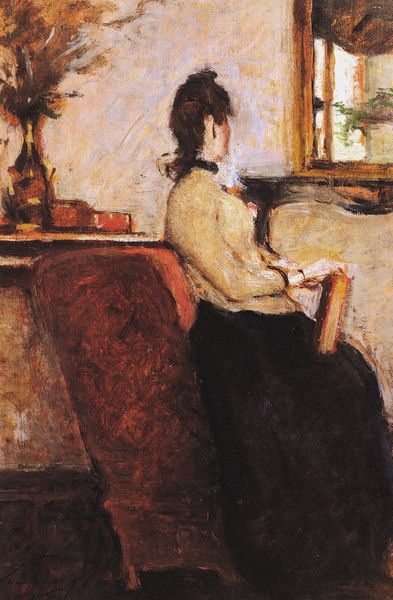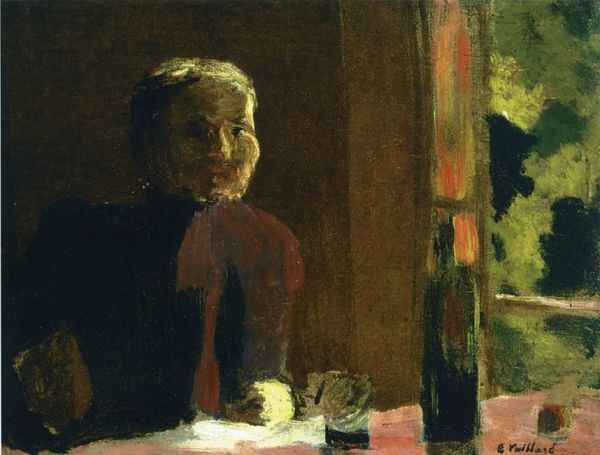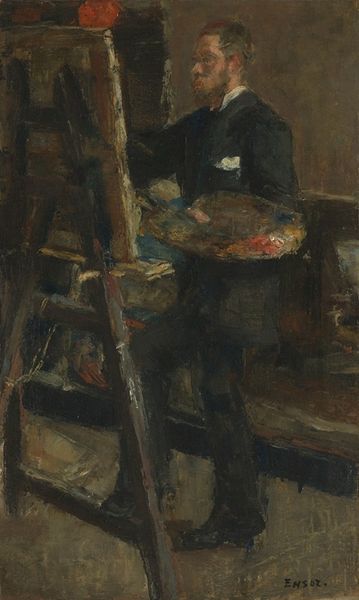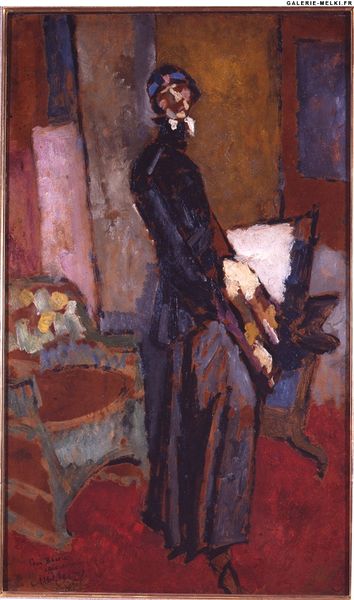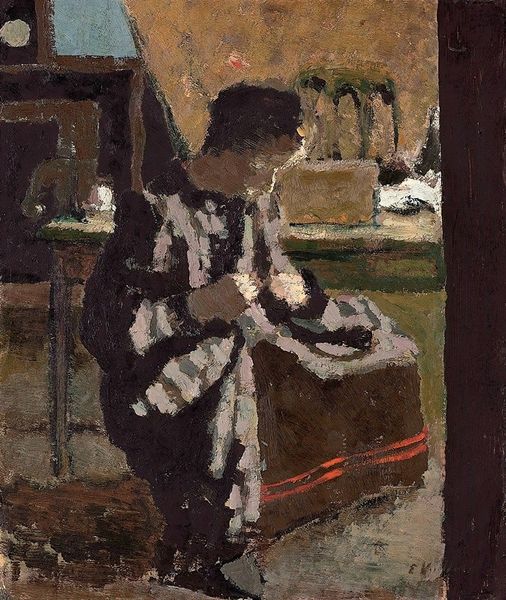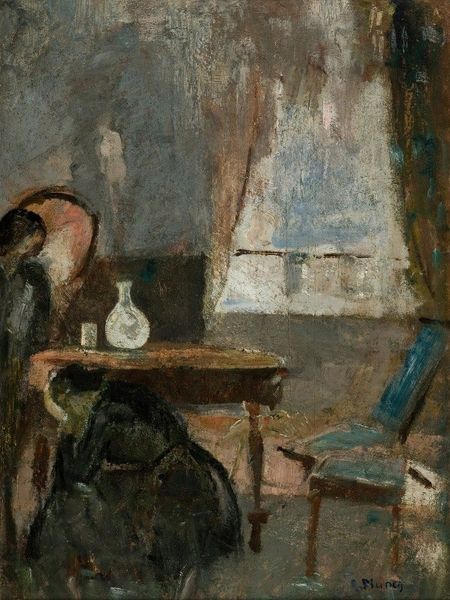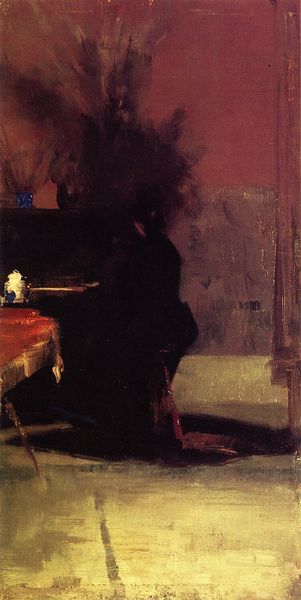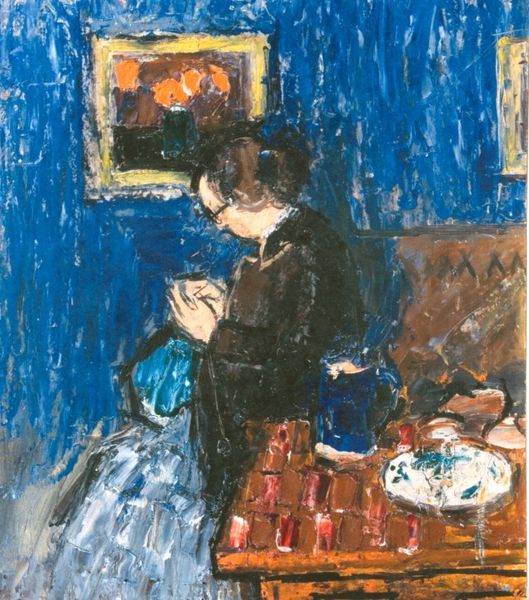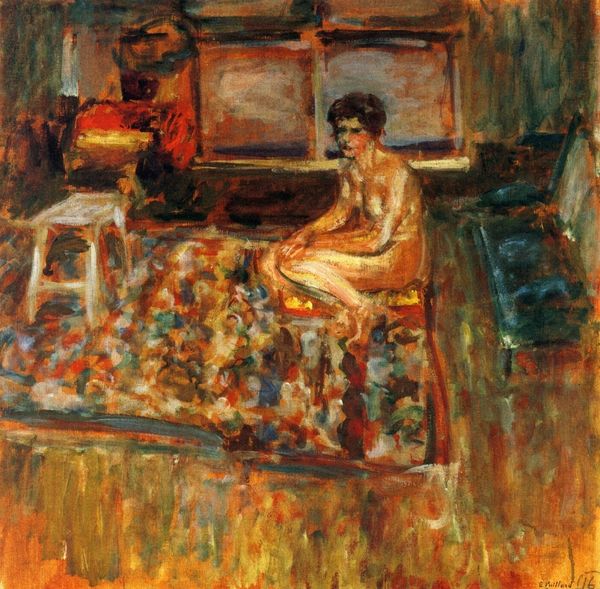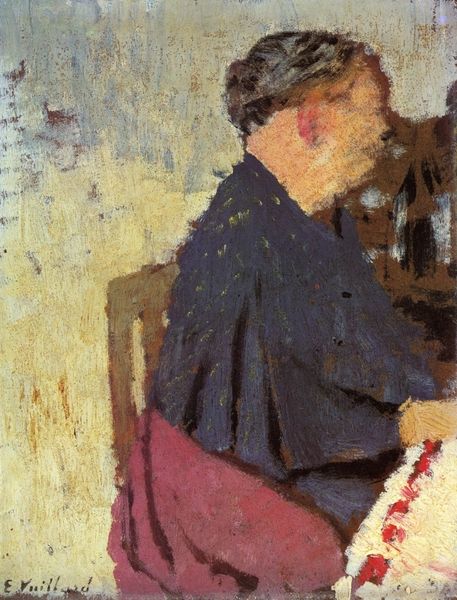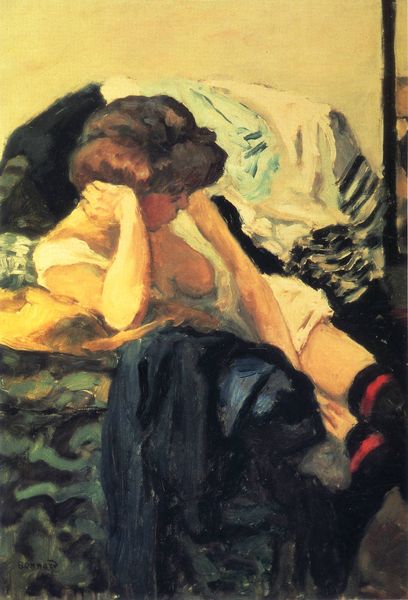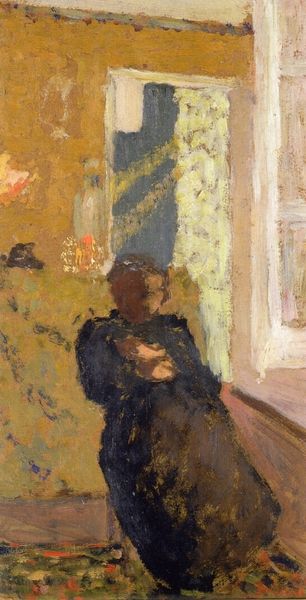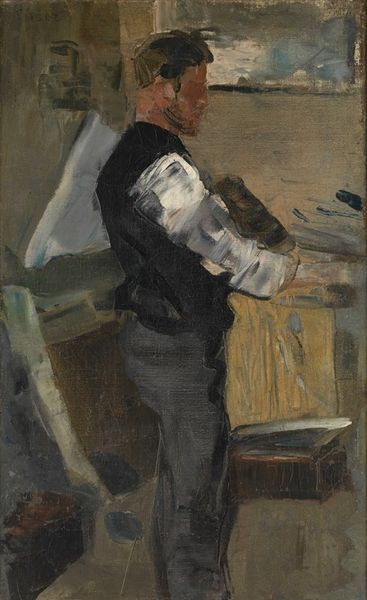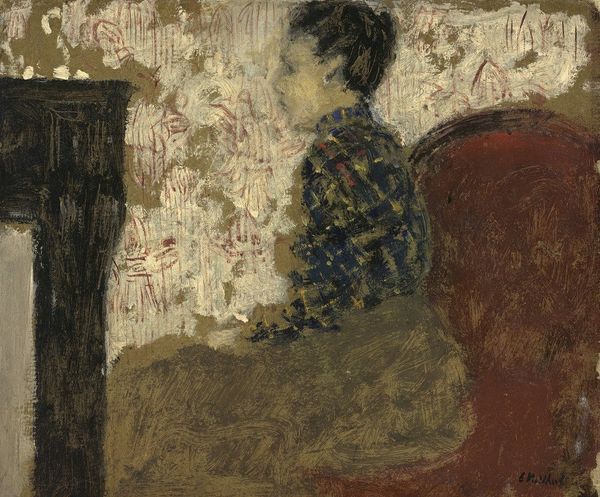
painting, oil-paint
#
portrait
#
painting
#
oil-paint
#
oil painting
#
expressionism
#
expressionist
Dimensions: 22 x 16 cm
Copyright: Public domain
Editor: Here we have August Macke's "Elisabeth at the Table," an oil painting from 1909. The texture looks really thick, and there's a restricted palette. What strikes me is the somewhat unsettling composition. What do you make of this work? Curator: Focusing solely on its formal properties, we can see how Macke employs color and brushstroke to build a rather complex pictorial structure. Observe how the subdued blues and browns create a sense of depth, pulling the viewer into the scene. Editor: It's interesting that you say that; the woman in the foreground dominates with her dark dress, which creates flatness. How are we meant to engage? Curator: Consider how the brushstrokes contribute to the surface tension. Notice the rough application of paint, creating texture that arrests our gaze. The geometry of the shapes, the almost abstracted forms – it's a network of visual relationships independent of any narrative. It all appears structurally unresolved, as well. Editor: I see what you mean about the relationships between forms; it almost becomes more about blocks of color than people. But aren't we supposed to be considering emotion in Expressionism? Curator: Emotion, yes, but conveyed through purely visual means. The dissonance between the limited palette and the broken forms evoke a psychological unease that supersedes conventional portraiture. Macke achieves this affect by manipulating pictorial space itself, don't you agree? Editor: That’s a different perspective. I was so focused on what seemed like an emotionally muted expressionist painting that I missed the nuances of Macke’s formal decisions. Curator: Exactly. This kind of formal exercise helps reveal the inner mechanisms of representation and pictorial structure, irrespective of period expectations or emotion, revealing, finally, its intellectual rigor.
Comments
No comments
Be the first to comment and join the conversation on the ultimate creative platform.
